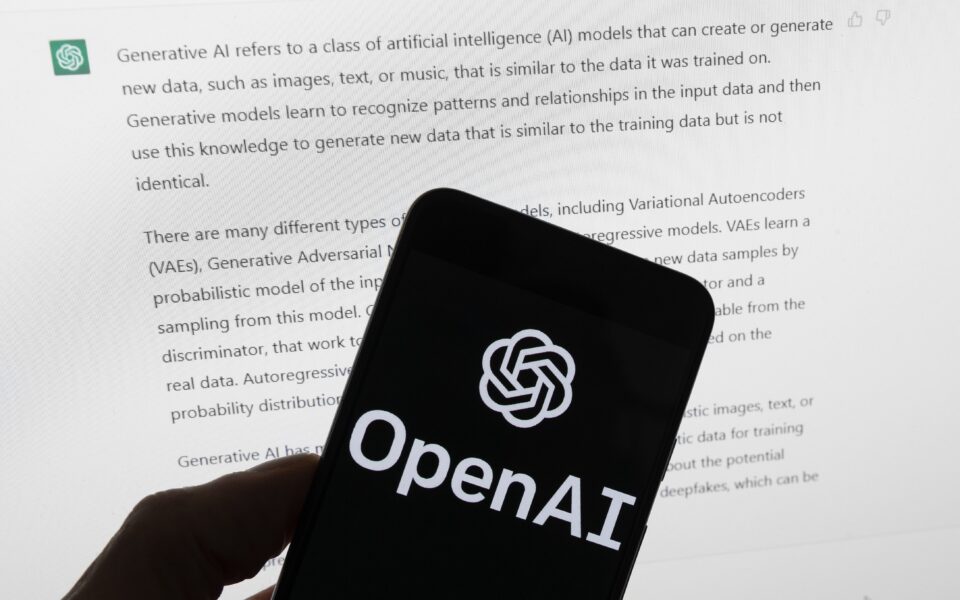From my trusted Olivetti to ChatGPT

I first saw a computer in 1972, in Karlsruhe. My daughter showed it to me at the German university where she was studying. It was a bulky thing; meant for shared use. I struggled to match her enthusiasm for all the wonderful things this contraption could do. I didn’t really care. I had my portable Olivetti typewriter – and I was very proud of it. Ten years later, in 1983, I bought my first computer. It was a 30x30x40cm box that sat moored on my desk. Today my computer is this light thing that allows me to work anywhere in the house, anywhere in the world, but also to listen to music, read the papers, communicate with friends, search encyclopedias, attend lectures, watch films… What a marvelous tool it is!
The other day, however, my granddaughter opened her computer and told me about a new app, ChatGPT, that can compose proper text. “Ask it to write something!” she said. “Like what?” I asked. “Anything!” “Write a poem about the light in the style of Cavafy,” I commanded the machine, confident that it would be too tall an order. But it started churning out verses at lightning speed. In Greek. And it wasn’t rubbish. It even resembled Cavafy a bit. I repeated the experiment with different themes and the response was instantaneous and apt – every time.
“Isn’t it amazing?” exclaimed my granddaughter. I was flabbergasted. I felt, in that instant, as the Luddites must have at the start of the Industrial Revolution when they snuck into factories at night to smash the machines. I wanted to reduce the computer to smithereens too. This new beast was a threat! Not only did it have an infinite amount of knowledge; it could do the same things my mind could do – and better, and faster!
Admittedly, my relationship with computers has not been as straightforward these past 40 years as it had been with my Olivetti for 25. I had learned how to use the machine once and that was that. I understood how she worked, I knew how to look after her and even how to mend her – and she consistently stayed the same. There were no surprises when I took her out of her case. “Good morning, Madame Olivetti,” I would say in greeting. “At your command,” she would answer. Not so with computers; fickle things, all quirks and changes – upgrades, they call them. I never asked for these upgrades, but I swallow them just like I did revolting castor oil because the adults said it was good for me. You take it even though you hate it. Every sip is more unpleasant than the last and seemingly more unnecessary.
I felt, in that instant, as the Luddites must have at the start of the Industrial Revolution when they snuck into factories at night to smash the machines
And here was ChatGPT, which is not just unnecessary itself, but makes me unnecessary. This would be writing novels from now on, articles in newspapers and essays… The genie was out of the bottle! It was almighty. And not only could it take my job away from me, it could form alliances with other genies to regulate what I read and therefore control how I think. Dear God! Where will it end?
With recent events on my mind, I thought of trains. In the old days, railway workers were very well paid because their job was very hard and required a great deal of responsibility. Now it appears that their job is to control the machines and, judging from what we recently learned, the salaries haven’t changed much, but the sense of responsibility has. Now we’re demanding machines, smarter and smarter machines, to take their proper place in railways and spare us, apparently, from tragedy. We’ll soon be trusting machines too much; we’ll no longer have people to control them – like the driverless municipal buses in Trikala. But what happens when the machines malfunction? How many people will they have killed before they’re stopped and fixed? Or just imagine if all these machines formed a union one day! If they demanded the right to strike and joined the May Day fun by switching off the power like some of our unionists did back in their heyday…
“Switch it off,” I begged my granddaughter in a trembling voice.
Athina Kakouri is a short-story writer and novelist.





